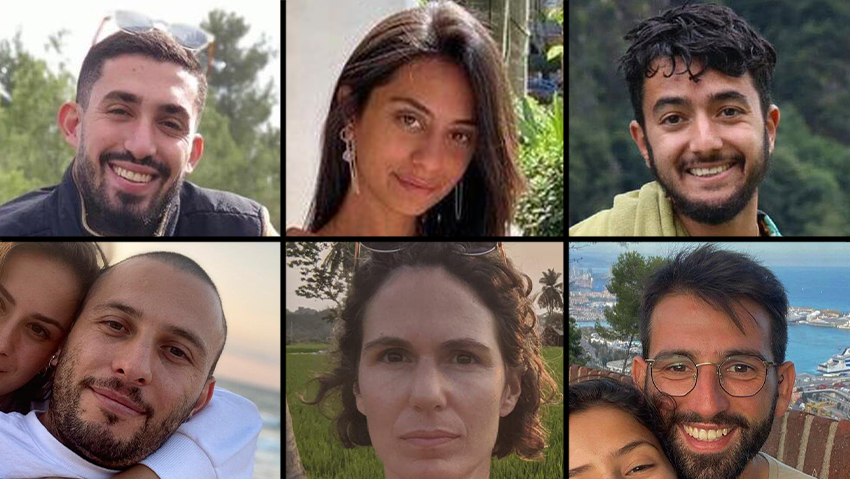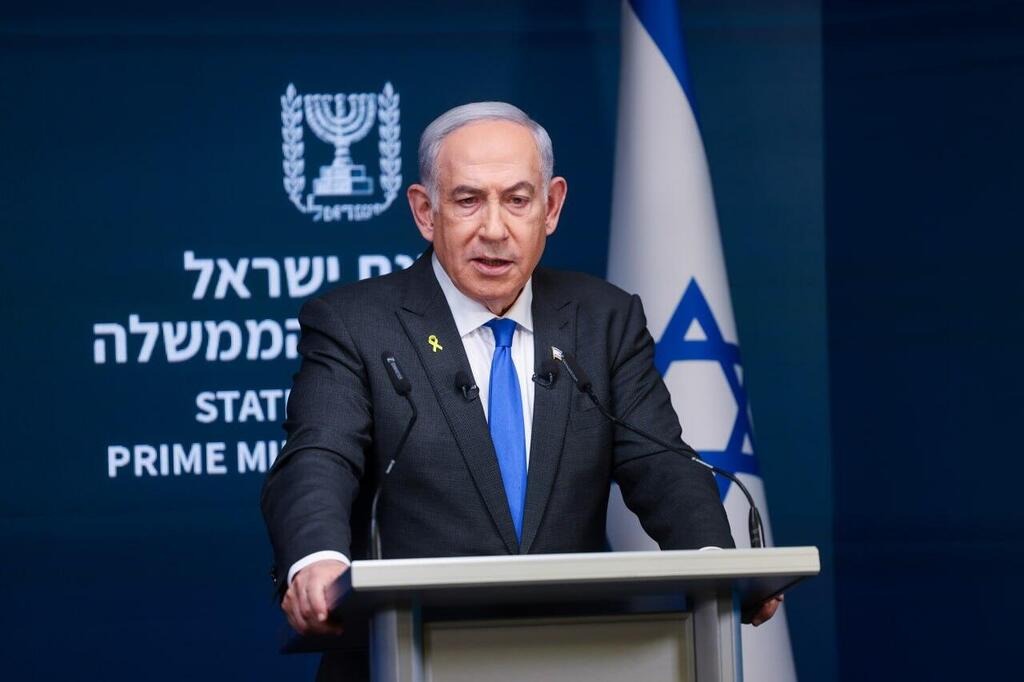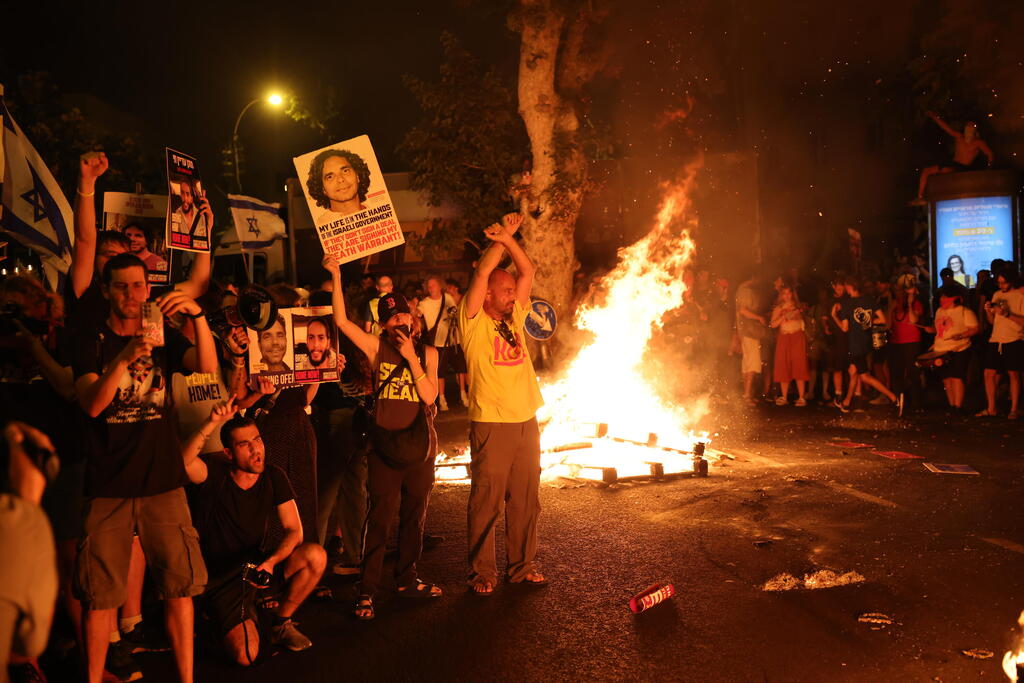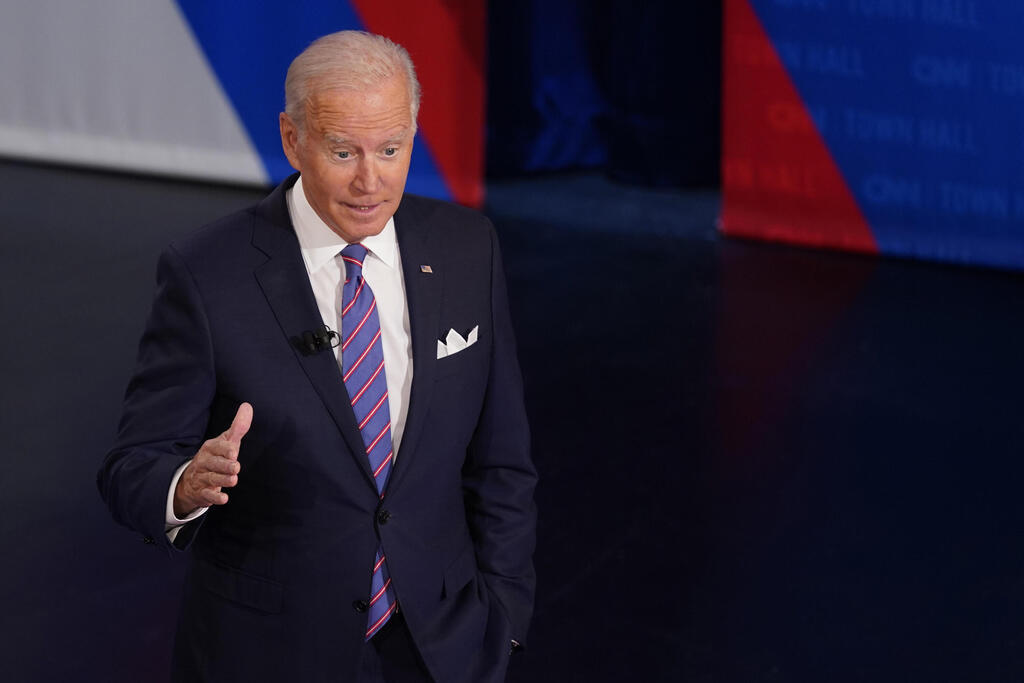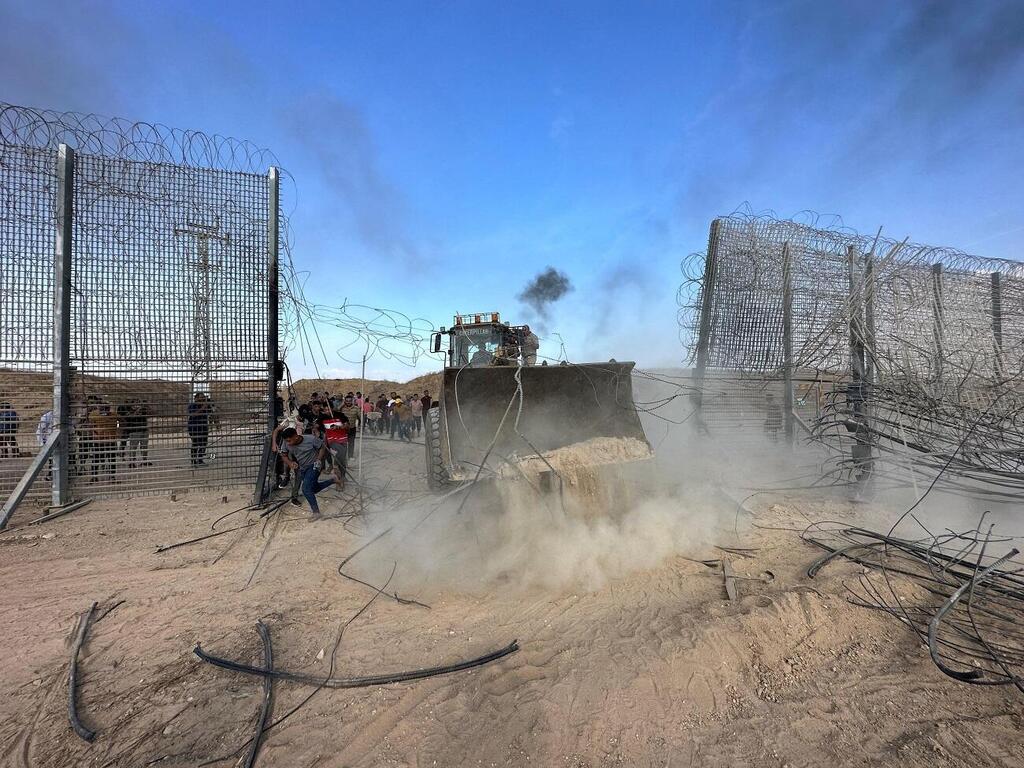Getting your Trinity Audio player ready...
The American and Israeli people are mourning over the murder of all of our hostages, but especially over the loss of American citizen Hersh Goldberg-Polin, whose parents became well-known and loved by the highest levels of the Israeli and U.S. governments over the past 11 months.
Both countries have the right to grieve, but this should also be a time for deep self-reflection. When those six bodies were extracted from a Gaza tunnel two days too late, the initial response was one of pain. The next step should be questioning: Where did we go wrong?
Did Israel and America fail those hostages? Did we fail Hersh and the Goldberg-Polin family? Here are 10 missteps to consider:
1: Overlooking the bigger conflict
Israel is not just facing Hamas. For the past 11 months, Hezbollah has been attacking, displacing over 80,000 people. The Houthis are targeting Israeli and allied ships in the Red Sea, damaging not just the Israeli economy but the global economy. In the West Bank, terror cells are mobilizing and preparing for imminent attacks. At the center of all this is Iran, which is stockpiling enriched uranium as it edges closer to nuclear weapons.
While these actions may seem aimed solely at Israel, the broader battle is not about Israel alone. It's a struggle between good and evil, a bid to shift global power dynamics. This is not just about destroying the Jewish state ("Little Satan" according to Iran), but rather about taking down the U.S. ("Big Satan") and the Western world. America should have been more deeply engaged in this fight long ago.
"We are preventing an international intifada," MK Sharren Haskel once said, describing Israel's role in the battle against extremism since October 7. "This is a war about our values, our culture, and our freedom—freedom of religion, freedom to be whoever we want to be."
This isn't about a respite or a cease-fire for a hostage exchange. U.S. President Joe Biden was wrong in May when he claimed Israel's goals in Gaza had been met and it was time to end the war as part of a hostage deal, implying Hamas couldn't launch another October 7 attack today. As Prime Minister Benjamin Netanyahu argued, Israel can't end the war until Hamas is destroyed, but Netanyahu was also mistaken. The fight isn't just against Hamas.
2: Neglecting to agree on a military plan
At the same time, Israel's leadership appears uncertain about how to effectively fight Hamas. IDF Chief of General Staff Lt. Gen. Herzi Halevi, Shin Bet Director Ronen Bar, and other top officials have indicated that they believe Israel could temporarily withdraw from the Philadelphi Corridor between Egypt and Gaza and easily return.
The country needs a unified military strategy that its security and political leadership support and the public can trust
However, Prime Minister Netanyahu firmly stated that Israel "will not, under any circumstances, leave the Philadelphi Corridor and the Netzarim Corridor" despite intense pressure. Even after the murder of six hostages, the prime minister reportedly insisted that "such a step would reward terrorism and send a dangerous message with Hamas that killing our hostages pays off. This will lead to demands for more and more concessions that will endanger Israel's security."
9 View gallery
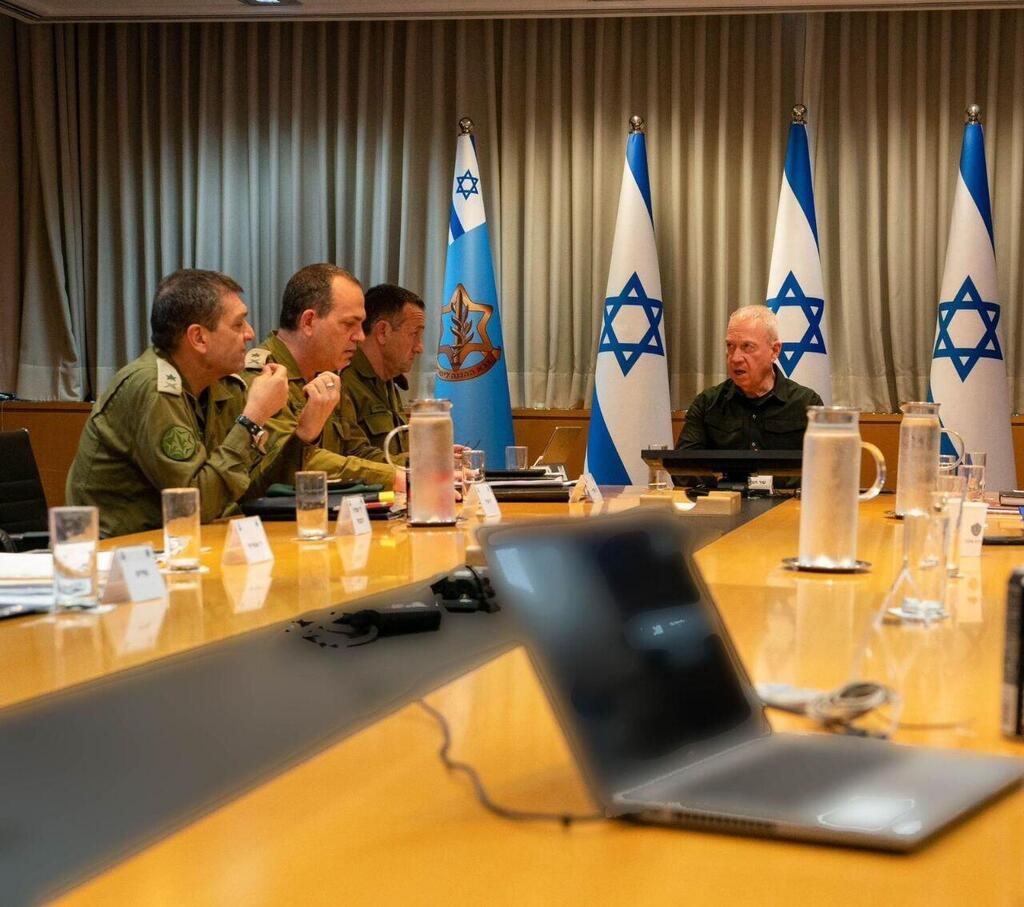

Defense Minister Gallant supported withdrawing for humanitarian purposes
(Photo: Ariel Hermoni, MoD)
Defense Minister Yoav Gallant was the only cabinet member who voted to exercise flexibility to advance the hostage deal negotiations. He did so not because he believed it would make Israel safer but because, according to leaks from a Thursday night meeting, he feared that refusing to withdraw temporarily from the Gaza-Egypt border would result in the death of the hostages.
Hamas, perhaps reading Israeli reports, responded by murdering six hostages. In this sense, Israel bears some responsibility. The country needs a unified military strategy that its security and political leadership support and the public can trust. Anything less invites chaos, as seen on October 7, when Hamas attacked Israel amid the nation's deep division over judicial reform. Our enemies thrive when we are weak and disjointed.
3: Eroding Trust
This lack of strategy has eroded the Israeli public's trust in their leaders—from the top ranks of the IDF to the government. A survey released last month by the Jewish People Policy Institute found that more than half (55%) of Jewish Israelis rated their trust in the senior military command as "low" or "very low." Meanwhile, less than a quarter (22%) expressed confidence in the government, and only 27% said they trust the prime minister.
These sentiments have been fueled by opposition claims that Netanyahu's war decisions are driven by political considerations—claims that, true or not, have gained traction. On the other hand, his far-right partners have warned they would topple his government if he made what they consider a reckless deal.
Some have argued that Netanyahu has never truly prioritized the hostages, contradicting his public statements. This perception is understandable, especially given comments from his far-right coalition members, such as Finance Minister Bezalel Smotrich, who in June clashed with hostages' relatives who demanded a cease-fire deal. "We will try to bring them back—but we will not collectively commit suicide," Smotrich said.
4: Fueling Sinwar's tactics
This lack of trust has driven hundreds of thousands of protesters into the streets. However, as some analysts have pointed out, this only encourages Hamas rather than bringing our hostages home.
Political commentator Caroline Glick wrote in a recent JNS column that Hamas leader Yahya "Sinwar's war strategy has been consistent since the outset: to use international pressure and domestic political unrest to force Israel to capitulate to his demands. If he and Hamas survive, Hamas wins. The hostages are key to achieving this goal."
Glick emphasized Hamas's use of hostage videos to illustrate her point. Released hostages revealed that the terror organization forced them to repeatedly record videos, making statements dictated by Hamas, always blaming Netanyahu for their suffering and urging Israel to submit to Hamas's demands or face their deaths. "The sole purpose of the videos is to destabilize the government by convincing the public that it is the government—not Hamas—effectively holding the hostages captive," Glick wrote.
United States has failed to properly assign blame for civilian deaths in Gaza, which rests with Hamas
The protests have a similar effect. When Israel shuts down the country in response to the death of hostages, it plays into Sinwar's hands. Internal unrest and mass protests signal to Sinwar the value of these hostages, encouraging him to hold on to them even tighter. As Tal Gilboa, whose nephew Guy Gilboa-Dalal is being held hostage in Gaza, wrote on her X account: "If the equation is dead hostages = shutdown of the state … what would you do if you were Sinwar?"
5: Delaying weapons, reshaping Rafah offensive
The U.S. also played into Sinwar's hands, particularly in May when the Biden administration limited or delayed American arms shipments to Israel over the decision to enter Gaza's city of Rafah, where six dead hostages were discovered over the weekend.
Biden, then up for reelection, told CNN he believed U.S. weapons had been used to kill civilians in Gaza and that he didn't want to empower Israel to do so any longer. "I made it clear that if they go into Rafah—and they haven't gone into Rafah yet—I'm not supplying the weapons that have historically been used there to deal with that problem," Biden said to CNN.
Biden's near-order to stay out of Rafah and the subsequent demand for Israel to update its military offensive plans for the city might have cost Israel the chance to locate the hostages three months earlier. It also created a concerning rift between the U.S. and Israel at a time when the world needed to see unwavering support from Washington.
Ultimately, Israel only launched targeted operations in some neighborhoods of Rafah and at the city's border crossing, evacuating large portions of the 1.5 million people sheltering there before proceeding with its efforts. Biden pushed Israel to change its tactics despite their insistence that military pressure in Rafah was necessary to force Hamas into a hostage deal and win the war.
6: Blaming Israel for civilian deaths in Gaza
Relatedly, the United States has failed to properly assign blame for civilian deaths in Gaza, which rests with Hamas. Hamas has used human shields in its conflicts with Israel since at least 2007, when it took control of the Gaza Strip. Yet, last month, Vice President Kamala Harris, and not for the first time, condemned Israel for civilian casualties resulting from a strike on a Gaza school building, which the IDF identified as an active Hamas and Islamic Jihad military facility.
While acknowledging Israel's right to "go after Hamas," Harris emphasized its "important responsibility" to avoid civilian casualties during a campaign rally.
Statistically, Israel has successfully avoided civilian casualties at a higher rate than the U.S. in previous wars. Although we can't fully trust the data provided by Hamas, and Israel may not be able to accurately assess every death until after the war, military experts estimate the combatant-to-civilian death ratio in Gaza at less than 1:2. In contrast, the United Nations assumes civilians typically make up around 90% of casualties in war—a 1:9 ratio (one combatant for every nine civilians).
The IDF prioritizes minimizing civilian casualties in Gaza, while Hamas deliberately seeks to cause harm. Therefore, our leaders should have focused more on countering Hamas’s tactics rather than being preoccupied with Israel's.
7: Misinterpreting the definition of 'civilian' in Gaza
Moreover, there needs to be a clearer understanding of what constitutes a "civilian" in the Gaza Strip. Growing evidence shows that United Nations relief workers and even young children have participated in terrorist tactics against Israel.
Over the weekend, Israeli news outlet N12 reported that at least 6,000 Gazans breached Israel's border on October 7 through 119 gaps they created in the border fence separating Israel from Gaza—double the number previously reported.
Of the 6,000 who crossed into Israel, only 3,800 were highly trained Nukhba terrorists. The remaining 2,200 were either terrorists from other groups or Gazan civilians who joined the terrorists in murder and looting.
N12 said these figures are based on a thorough investigation by the Gaza Division, which was submitted to the chief of staff. Israel has consistently argued that numerous Gazan civilians were actively involved in the October 7 massacre—the same civilians now claiming to suffer a humanitarian crisis.
Many of these individuals sided with Hamas during the assault, and polls show that the majority still supports the terror organization, even as Israel continues its military operations in Gaza. Not everyone in Gaza is a terrorist, and humanitarian aid is crucial. However, the well-being of the hostages should have been given equal priority.
8: Misleading a generation
We have also witnessed a more progressive cohort in the U.S. that is either grossly uneducated about the methods and ideology of Hamas or simply chooses to ignore them. Too many students on university campuses have turned Israel's war against a terrorist organization that slaughtered 1,200 people in a single day into a misguided fight for justice for Palestine and against Israel's very right to exist.
Whether this distorted perspective stems from privilege, Qatari funding, or something else entirely, it reflects a failure of American leadership. It's alarming that individuals, including LGBTQ+ communities who would face persecution and death by Muslim extremists in Gaza, believe they should stand in solidarity with them.
9: Trusting the Wrong Allies
The Washington Post reported on Sunday night that America is once again working with Egypt and Qatar on a final "take it or leave it" deal to be presented in the coming weeks. According to the report, a senior administration official indicated that if this version fails, it could mark the end of American-led negotiations.
9 View gallery
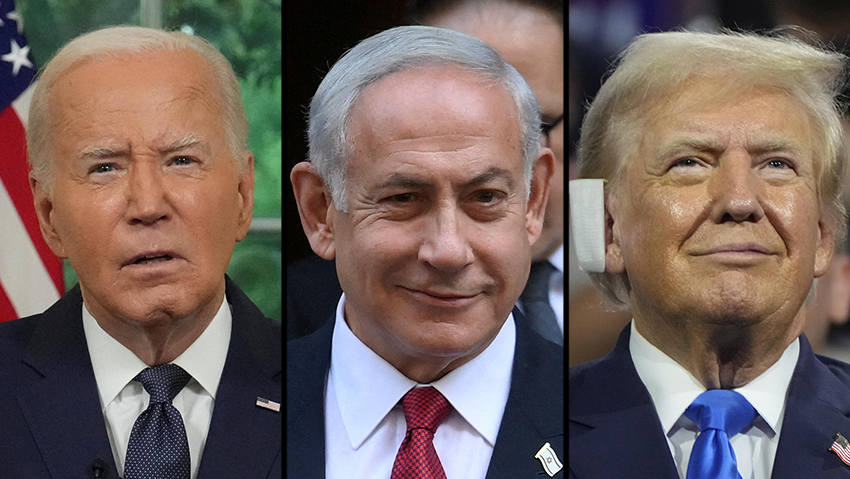

Biden, Netanyahu, Trump
(Photo: AP Photo/Paul Sancya , Reuters, Erin Schaff/Pool via REUTERS)
However, perhaps the U.S. has relied on the wrong partners for these negotiations. Hamas operates openly and freely in Qatar, while Egypt has turned a blind eye to the weapons Hamas was smuggling across its border. The question shouldn't be, as Biden reportedly asked behind closed doors, whether the murder of these six hostages will push Israel to sign a deal. The real question is why terror-supporting regimes are being allowed to negotiate a deal for Israel.
10: Revealing Weakness
Whether or not you support former U.S. President Donald Trump, the Republican nominee made a valid point on Sunday when he stated that a weak administration plays into the hands of Hamas and, much like the divided leadership in Israel (not Trump's words), is partly responsible for the murders of the hostages.
 Maayan Hoffman
Maayan HoffmanTrump posted on his Truth Social platform: "We grieve the senseless death of the Israeli hostages, horrifically including a wonderful American citizen, Hersh Goldberg-Polin, murdered by Hamas due to a complete lack of American strength and leadership... Kamala and Biden's judgment has not only put lives at risk but is directly responsible for unnecessary deaths that should never have happened."
While this statement is certainly a political tactic, the underlying lesson is accurate: In the Middle East, strength is essential — whether internal, external, emotional, spiritual, or physical. In this sense, both the U.S. and Israel failed to save those six hostages and share partial responsibility for their deaths.
- Maayan Hoffman is editor-in-chief of ILTV News, a correspondent for The Media Line, and host of Hadassah on Call: New Frontiers in Medicine podcast.


